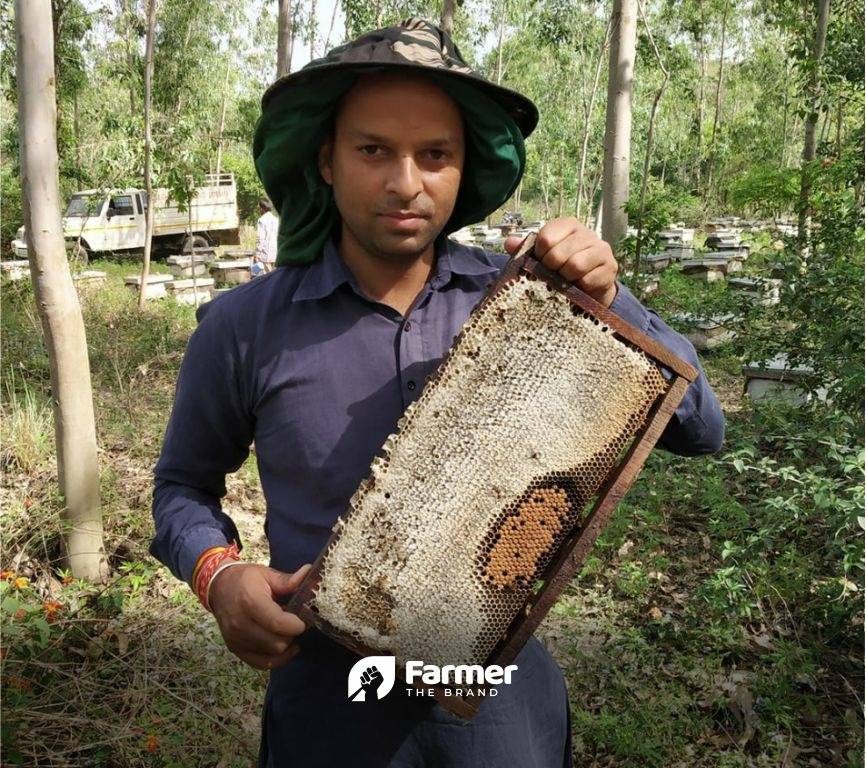
Jatinder Jeet Pal, is a beekeeping expert and honey farmer from Doraha in district Ludhiana of Punjab. He resides in Doraha and his factory is in Doraha. He was recently interviewed by Mousmi Bhatt on FTB platform of Krishi Jagran.
When asked as to how he setup his business, what kind of training he took part in and how long it took him to setup his brand, he replied that he joined the business in 2005 which had been established in 1982 by his father. His father did business in beekeeping equipment and he went one step ahead with beekeeping. He has not left what his father setup and he supplies beekeeping equipment too. In 2011 he took his business even further by exporting the beekeeping equipment. He was trained in beekeeping by Krishi Vigyan Kendra (KVK), Samrala and Punjab Agriculture University (PAU), Ludhiana. Horticulture Department helped him in receiving training overseas in 2016.
What he sells?
Next we asked him the different products he sells. He replied that he has branded his honey, which he packages himself and exports to USA. He has an outlet, which he has designed in European style and it has been liked by everyone including foreigners. He exports beeswax and honey processing equipment for the entire plant, like honey extractor, beehive. Every component of the bee keeping process is manufactured by them and supplied all over India. Horticulture department, PAU, Agriculture Universities in Hissar and Palampur in Himachal Pradesh are their customers. They are attached with a number of beekeepers and farmers, including farmers from UP, Bihar and Rajasthan to whom they supply beekeeping equipment.
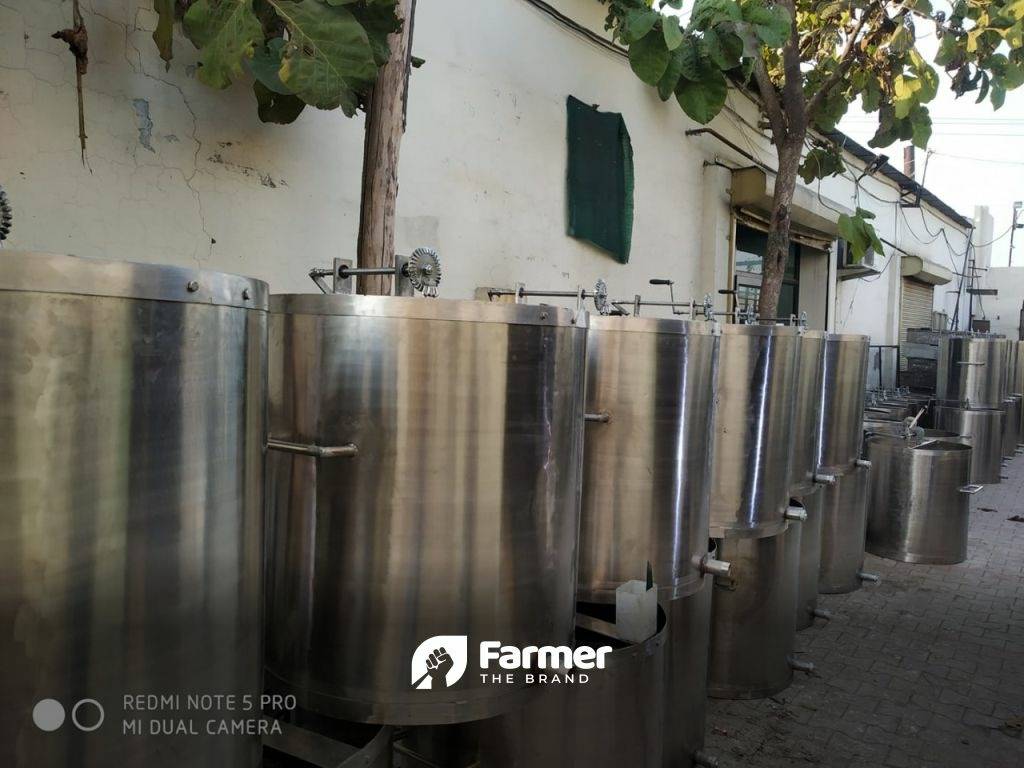
Mousmi requested him to talk about the varieties of honey that he sells. He said they produce different type of honey, through different type of horticulture farms. They have ajwain (carom seeds) honey, sunflower honey, jamun (Indian blackberry) honey, lychee honey. These honeys being of different type are branded differently. They also produce flowers honey, from different type of flowers. They don't provide multi or mixed honey, only pure honey. They also prepare honey nuts which are exported. They also produce amla murabba (Marmalade), ginger honey, garlic honey. You can come to see and buy these different varieties from their outlet.
What is special about his honey?
We requested him to explain, how his honey is different from that produced by other beekeepers. He said his honey is the produce of his farm and farmers. They produce honey according to demand in the market. They have dedicated beekeepers who look after the entire process to produce the purest honey. His honey is unadulterated without any medicine or antibiotics. Our customers have faith in us and we always get repeat business i.e. everyone who buys from us always returns for more. There is too much demand for his honey and sometimes he is short on his supply.
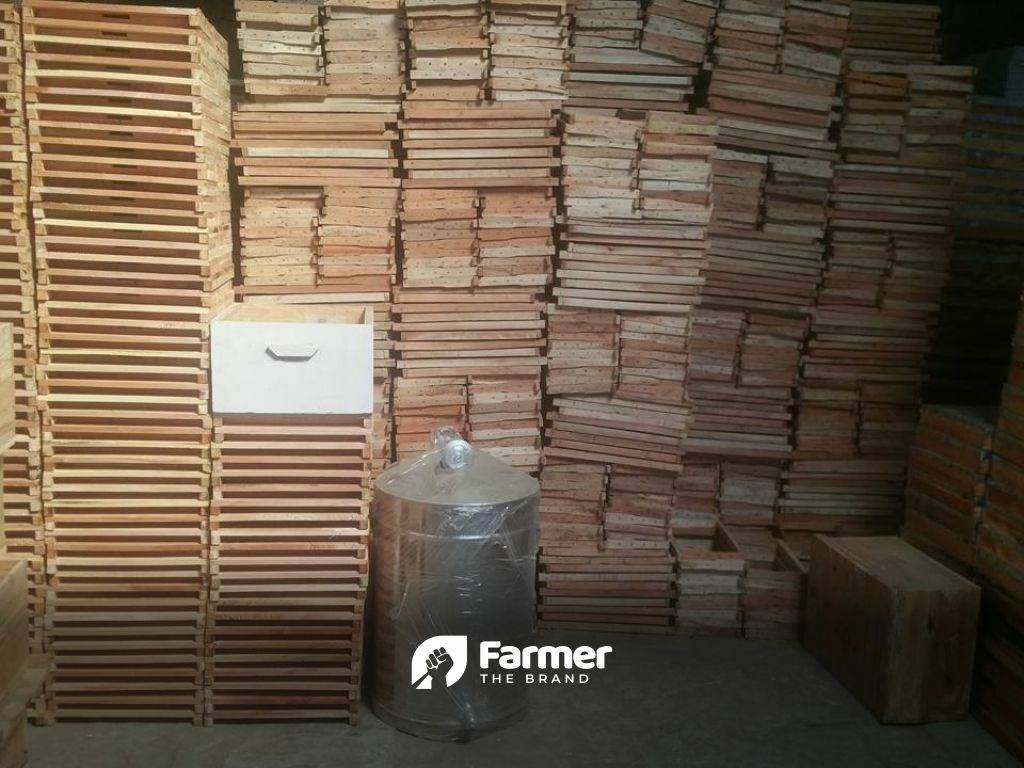
We requested him to explain in details his export and interstate business in India. He said he mostly exports his products including honey to USA, Japan and countries in Middle-East. In 2016 he received a certificate from Punjab government with a cheque of Rs. 30,000. He has received a number of awards from PAU and National Bee Board.
Difficulties and Future
We asked him if he faced any difficulties with his business initially, to which he replied that his main problems were diseases, for which he got assistance from PAU doctors, researchers and KVK Scientists. He said in 2003 there was a big problem of Varroa mites, which these officials helped sort out. For any problems he faces he always interacts with them.
As for his future plans he said at the moment he is exporting on a very low level. He has a small bottling unit and he exports what he manufactures. In future he wants to export in bulk, particularly his honey, as there is greater demand for bulk exports of these items. He said that Horticulture Department sent him to western countries for training and they are almost a 100 years in front of us in terms of the beekeeping technology, methods and inputs. They have kept their farmers ready and prepared against any diseases. They just don't want honey but they also use up the byproducts. He therefore wants to bring this western technology to India, so we don't lack behind in anything.
He was asked if he was interested in selling his honey online through portals like Amazon or Flipkart, he said he is very much interested, however there is a lot of competition in selling your products this way. He said most people see price tags before buying and his high quality pure honey is pricey, that's why he has not thought of this option but he is willing to try now to see if he will succeed.
He has a staff of 35 employees working with him at the moment. They work in beekeeping and equipment manufacturing. In the factory they are involved, as already mentioned, in manufacturing of every equipment required for beekeeping. So he has all type of engineers working for him.
On the question of diversifying, he replied in negative, saying that he is already occupied with beekeeping and equipments. His time is short for what he is working on right now, hence he has no time to take up new activities. He is satisfied with the work he is doing.
Words of Encouragement
We requested him to say a few words to the budding beekeepers, he said starting work with beekeeping is very simple nowadays as it is well supported by the government and educational authorities. Horticulture Department is providing 40 percent subsidy for setting up of such businesses in Punjab. In other states the subsidies are much greater. Khadi & Village Industries Commission provides 35 percent subsidy and the "Honey Mission" started by the Prime Minister is providing subsidy up to 90 percent for new setups. You can get training easily from your local KVK. You can start by registering with KVK and once a batch of 30-35 students is ready, your training will start. And the work is not too difficult or boring either. It's a good field to work with. This business requires small investment and how you progress will depend on how hard you work. The levels you go to depends on you. In his experience of 20 years he has not suffered loss in a single year. The rate of honey keeps fluctuating but the demand for good products is never low. Those interested must know that this is a good business to work in.
For those already in this field he recommends that experiment with different types of bees. Most of us are beekeeping the traditional way and there is no "super beekeeping", we are beekeeping by managing single boxes. Foreign and domestic institutions like Agriculture Universities are recommending "super beekeeping" to us. So, all beekeepers across India must start "super beekeeping", to keep the bees healthy, to get good quantity of honey and for high quality honey. This will improve the demand overseas. To see the video please click here.






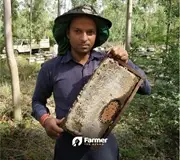





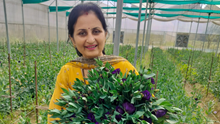


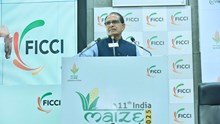
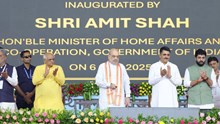

Share your comments